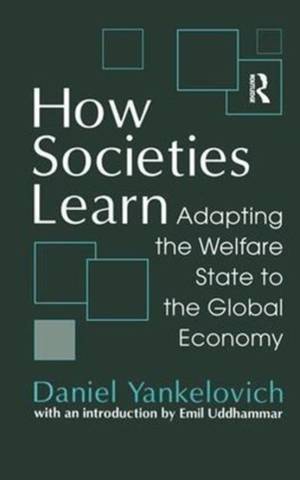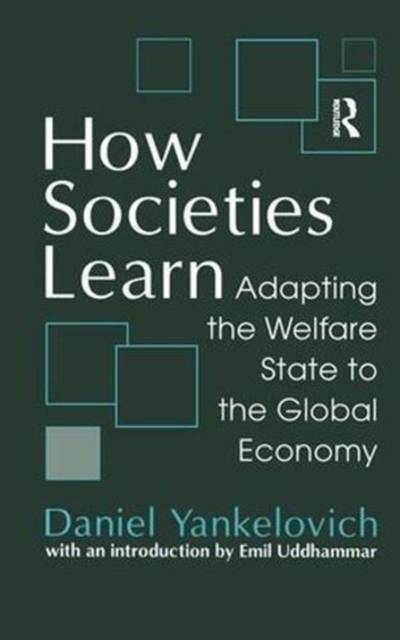
- Afhalen na 1 uur in een winkel met voorraad
- Gratis thuislevering in België vanaf € 30
- Ruim aanbod met 7 miljoen producten
- Afhalen na 1 uur in een winkel met voorraad
- Gratis thuislevering in België vanaf € 30
- Ruim aanbod met 7 miljoen producten
Omschrijving
The theme of Daniel Yankelovich's Zetterberg Lecture is timely and urgent: how do societies learn? We know that individuals can learn, but can collectivities do likewise? More specifically, how can complex political systems adapt to a changing world? Yankelovich focuses specifically on the severe problems of the different attempts to treat welfare in the United States and Sweden. What kind of strategies can be attempted to accommodate these systems to the economic forces of globalization? Yankelovich answers by citing a version of trial and error in human affairs, a process of "lurch and learn." Yankelovich suggests that future changes in welfare systems will have to rely on mechanisms of reciprocity, rather than the claims of specific interest groups. Sociologist and public opinion analyst, Daniel Yankelovich is co-founder with Cyrus Vance and current president of the Public Agenda, a nonpartisan, nonprofit public opinion research and citizenship education organization based in New York City. He is a past chairman of the board of Transaction. This is the first of the Hans L. Zetterberg Lecture Series delivered at the City University of Stockholm in 1997.
Specificaties
Betrokkenen
- Auteur(s):
- Uitgeverij:
Inhoud
- Aantal bladzijden:
- 64
- Taal:
- Engels
Eigenschappen
- Productcode (EAN):
- 9781138525368
- Verschijningsdatum:
- 8/06/2018
- Uitvoering:
- Hardcover
- Formaat:
- Genaaid
- Afmetingen:
- 129 mm x 198 mm
- Gewicht:
- 452 g

Alleen bij Standaard Boekhandel
Beoordelingen
We publiceren alleen reviews die voldoen aan de voorwaarden voor reviews. Bekijk onze voorwaarden voor reviews.











